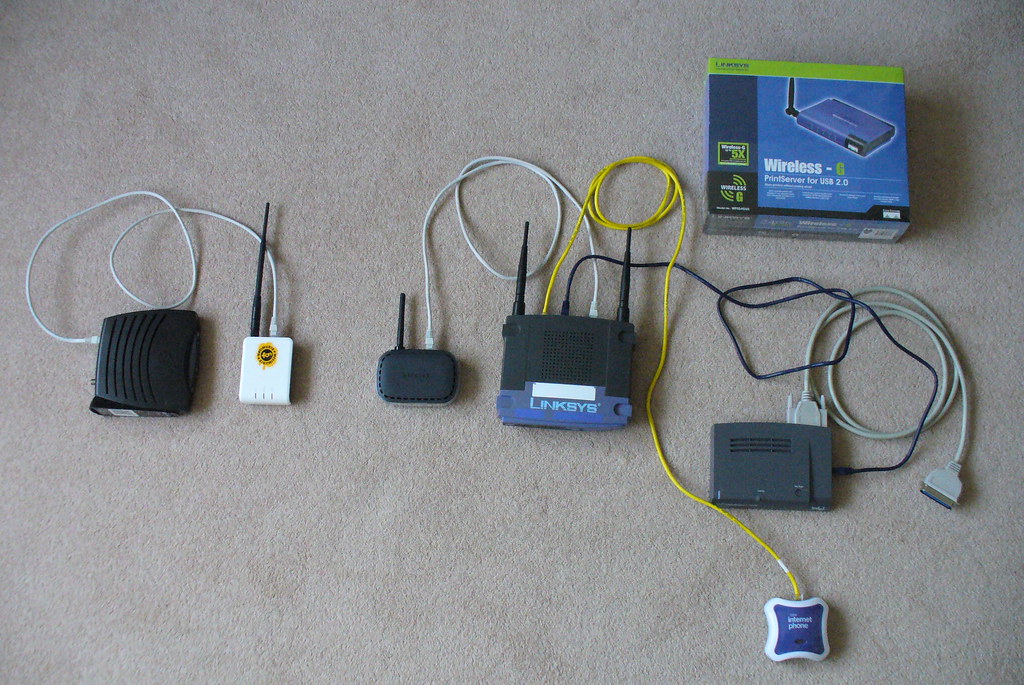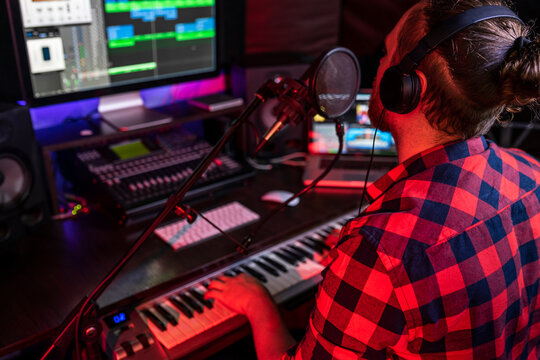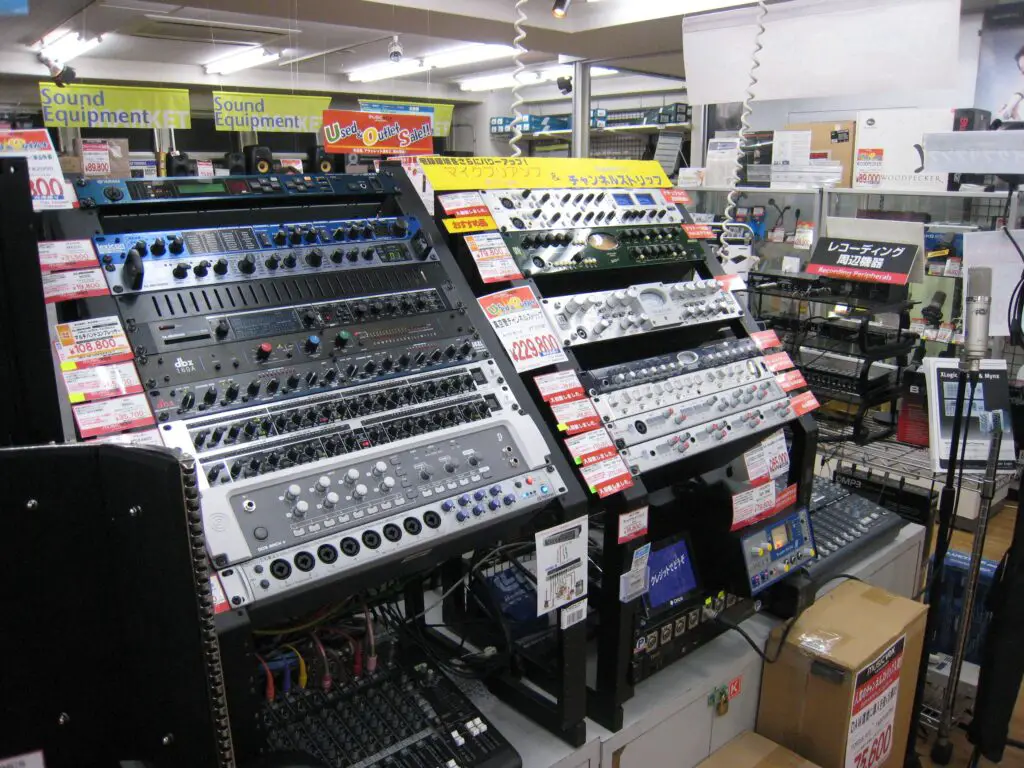As a music producer, you know that the right equipment can make or break your sound. But with so many laptops on the market, how do you know which one is best for your needs? It can be overwhelming to navigate all of the different specs and features, especially if you’re not a tech expert. Fear not, because we’ve got you covered. In this blog post, we’ll break down the essential laptop specs that every music producer should consider to achieve ultimate sound quality in their productions. Get ready to take your music production skills to the next level with Music Production Laptop Specs for Ultimate Sound.

The Processor: Why It Matters for Music Production
The processor is the brain of your laptop and plays a crucial role in music production. As such, it’s important to choose one that can handle complex audio processing without slowing down your workflow. Look for a quad-core or higher Intel Core i5 or i7 processor with at least 2 GHz clock speed. A processor with hyper-threading technology will also help maximize performance by allowing multiple tasks to run simultaneously.
Since music production software uses up a lot of CPU power, it’s best to avoid processors with low thermal design power (TDP), which tend to overheat quickly under heavy load. Aim for a TDP of 45 watts or more.
When choosing an AMD processor instead of Intel, consider going for Ryzen series as they provide comparable performance at lower prices but may have limited compatibility issues on some specific DAW software programs. Overall you don’t need the most expensive and powerful options out there, just make sure you pick something more suitable than what they offer in entry-level laptops if you want reliability and performance.
RAM Requirements for Flawless Audio Editing
RAM requirements for music production are higher than for most other tasks. This is because audio editing software uses a lot of memory to store and manipulate large audio files. At a minimum, you should have 8GB of RAM, but for optimal performance, 16GB or more is recommended.
When working with virtual instruments and effects plugins, you will need even more RAM. Some of the most popular plugins can use up to 2GB of RAM each, so having at least 32GB of RAM is ideal if you plan on using a lot of them in your projects.
It’s important to note that not all laptops allow for easy upgrades to the RAM. So, it’s best to get a laptop with the amount of RAM you need right from the start. Don’t skimp on RAM if you want to produce high-quality music without any lag or glitches.

Storage Considerations: SSD vs HDD
SSD or HDD? When it comes to storage, this is a question that every music producer must answer. Solid State Drives (SSDs) are faster and more reliable than Hard Disk Drives (HDDs), but they are also more expensive. HDDs, on the other hand, offer more storage space for less money but are slower and less durable.
For music production, an SSD is highly recommended as it can significantly improve your workflow. With faster read and write speeds, you can load large sample libraries and projects quickly, which is crucial when working on tight deadlines. Additionally, SSDs have no moving parts, making them less prone to failure due to shock or vibration.
That being said, if you’re on a tight budget or need a lot of storage space for your music files, an HDD may be a better option. Just make sure to back up your data regularly and consider investing in an external SSD for your most important projects.
Graphics Card Essentials for Creative Professionals
A graphics card is an essential component for any creative professional, and that certainly includes music producers. While it’s not the most important factor in a laptop for music production, having a dedicated graphics card can help speed up certain processes such as rendering audio tracks or running multiple virtual instruments simultaneously.
When choosing a laptop for music production, look for one with at least a mid-range graphics card from Nvidia or AMD. The more powerful the graphics card, the better your laptop will be able to handle tasks like video editing and 3D modeling if you decide to branch out into other creative fields.
That being said, don’t prioritize the graphics card over other specs like processor speed and RAM capacity. It’s all about finding balance in your machine so that it can deliver optimal performance across all areas of music production.
Display Size and Resolution: Finding the Sweet Spot
When it comes to music production, having a high-quality display is crucial for both accuracy and comfort. The ideal size depends on personal preferences, but most producers find that a 15 or 17-inch screen strikes the perfect balance between portability and viewing space. It’s important to choose a laptop with high resolution, such as at least full HD (1920 x 1080) or even higher.
A higher resolution display will allow you to see more details in your audio waveform, making it easier to edit tracks precisely. Additionally, many modern laptops offer displays with improved color accuracy, which are essential for professionals who need accurate representation of their work.
Ultimately, finding the right sized display with optimal resolution can greatly improve your overall experience during long hours spent editing sessions.

Connectivity Options You Can’t Do Without
Connectivity options are crucial for music producers who need to transfer large files and connect to various audio interfaces. Look for a laptop with multiple USB ports, including at least one USB-C port for faster data transfer speeds. Thunderbolt 3 ports are also useful for connecting external displays and other peripherals. An Ethernet port is also important for stable internet connectivity, especially when working on collaborative projects online. Additionally, having an SD card reader can be helpful for transferring files from cameras or other devices. Don’t forget to check if the laptop has Bluetooth and Wi-Fi capabilities as well. Having a laptop with a variety of connectivity options will ensure that you can work seamlessly with your audio equipment and other devices.

Keyboard Quality and Layout for Speedy Workflow
The Importance of Keyboard Quality in Music Production
The keyboard quality is an essential factor to consider when choosing a laptop for music production. A good keyboard can significantly improve your workflow and speed up the editing process. Look for a laptop with a keyboard that has a comfortable and responsive feel, with keys that are well-spaced and have good travel distance. Backlit keys are also helpful when working in low-light environments. Additionally, customizable shortcut keys can be a game-changer, allowing you to assign frequently used functions to specific keys for quick access. Don’t overlook the importance of keyboard quality when selecting your music production laptop.
Ergonomic Layouts: Enhancing Speed and Efficiency
When it comes to music production, having a keyboard with an ergonomic layout can make a huge difference in your speed and efficiency. Look for keyboards with a comfortable key spacing and a responsive touch. Backlit keys can also be helpful when working in low-light environments. Additionally, customizable shortcut keys can save you time by allowing you to quickly access frequently used functions. A keyboard with a built-in touchpad or trackpoint can also be beneficial for those who prefer not to use an external mouse. Don’t overlook the importance of keyboard quality and layout when selecting a laptop for music production.
Recommended Keyboard Specs for Ultimate Sound Creation
When it comes to music production keyboard quality and layout can greatly affect your workflow. Look for a laptop with a backlit keyboard to make late-night sessions easier on the eyes. Additionally, consider a full-size keyboard with a numeric keypad and well-spaced keys for comfort during extended periods of use. Quick response time is crucial when working with virtual instruments, so look for models that offer an ultra-fast key recognition rate.
For optimal sound creation, invest in a MIDI controller that has responsive keys and configurable knobs and sliders. This will allow you to map sounds easily and manipulate them quickly for ultimate creative control over your project. With these keyboard specs, you’ll be able to create high-quality music more efficiently than ever before.
How to Choose the Best Laptop Keyboard for Music Production
The best laptop keyboard for music production should offer both comfort and speed. Look for keyboards that have a good tactile response, with keys that are easy to press and have enough resistance to avoid accidental keystrokes. A backlit keyboard is also helpful when working in low-light environments.
Additionally, having dedicated shortcut keys can greatly improve your productivity by allowing you to quickly access common functions like cutting and pasting or adjusting volume levels. The layout of the keyboard should also be taken into consideration, as some laptops may differ from the standard QWERTY layout.
Overall, choosing a laptop with a high-quality keyboard will ensure that you can work efficiently without sacrificing comfort or accuracy.

Battery Life and Portability: Balancing Your Needs
Battery life and portability are crucial factors when choosing a music production laptop. While you may be spending most of your time in the studio, it’s important to consider if you need to take your work on-the-go or perform live. A good battery life ensures that you won’t run out of juice halfway through a session, while portability allows you to take your setup wherever inspiration strikes.
Aim for at least 6-8 hours of battery life on a single charge, although more is always better. Consider laptops with power-saving features like Intel Speed Shift technology or NVIDIA Optimus graphics switching to extend battery life.
As for portability, look for thin and lightweight options without sacrificing essential specs like processor speed and RAM capacity. Consider laptops with smaller display sizes as they tend to be more portable but ensure that the resolution is still high enough for comfortable use.
Finding the right balance between battery life and portability will ultimately depend on your individual needs as a music producer.

Recommended Laptop Models for Aspiring Music Producers
When it comes to music production laptop specs, there are a few recommended models that stand out. The first is the MacBook Pro, which has been an industry standard for years thanks to its powerful processor and high-quality audio output. Another great option is the Dell XPS 15, which boasts impressive RAM and storage capabilities as well as a dedicated graphics card.
If you’re looking for something more affordable, consider the ASUS ROG Strix G15 or Lenovo Legion Y740. While not specifically marketed towards music producers, these gaming laptops offer powerful performance at a lower price point.
For those on-the-go producers who prioritize portability, check out the Microsoft Surface Book 3 or HP Spectre x360. Both offer impressive battery life without sacrificing processing power.
Remember that no matter what model you choose, always opt for one with at least 16GB of RAM and an SSD instead of HDD. With these crucial features in mind, you’ll be well on your way to creating studio-quality tracks from anywhere!
In conclusion, selecting the right laptop specs is essential for anyone looking to master music production. From powerful processors and RAM requirements to graphics card essentials and storage considerations, every component matters when it comes to delivering ultimate sound quality.
As a creative professional, you also need to consider display size and resolution, keyboard quality and layout as well as connectivity options that can help you achieve speedy workflow. And don’t forget about portability – choose a laptop with balanced battery life according to your needs.
To help you make the best decision for your music production needs, we have recommended some top-performing laptop models in this article. However, always remember that finding the perfect fit will depend on your unique preferences.
If you found this article helpful in choosing your music production laptop specs or want more expert advice on technology and creativity-related topics like this one, be sure to check out our other content today!


